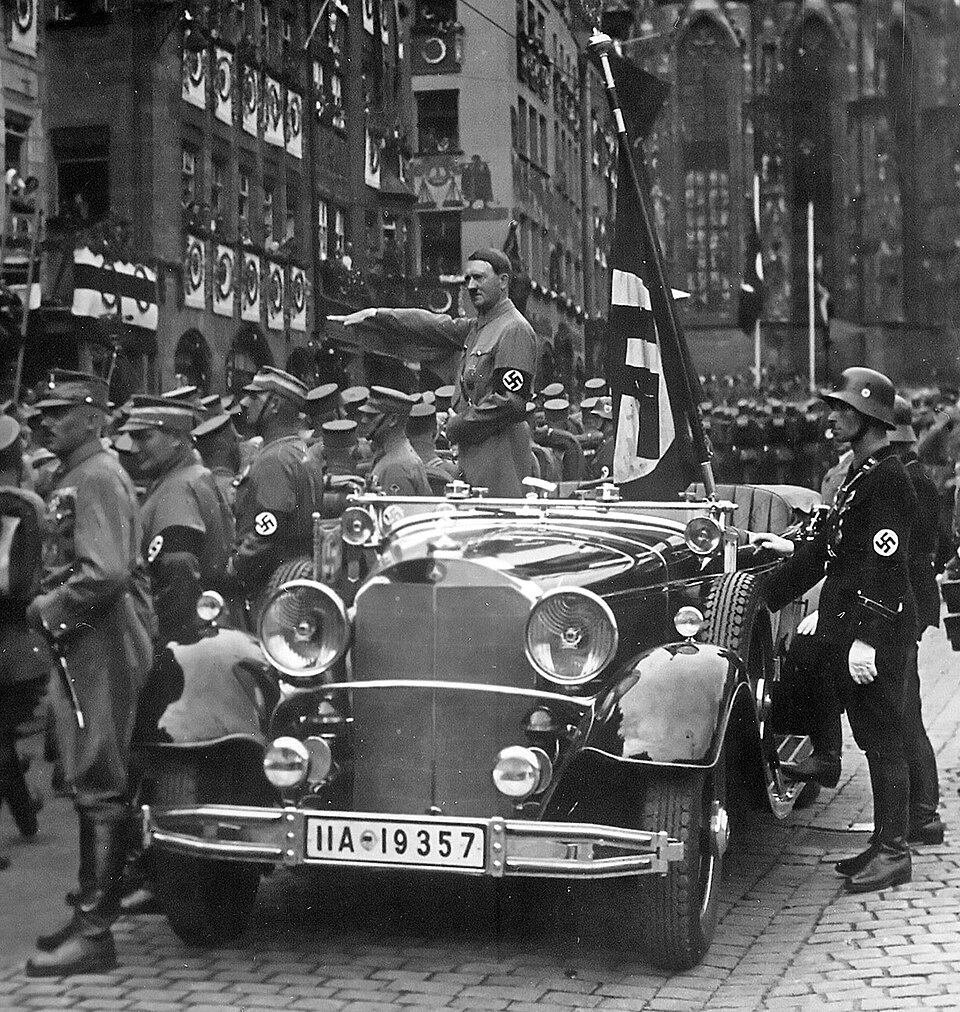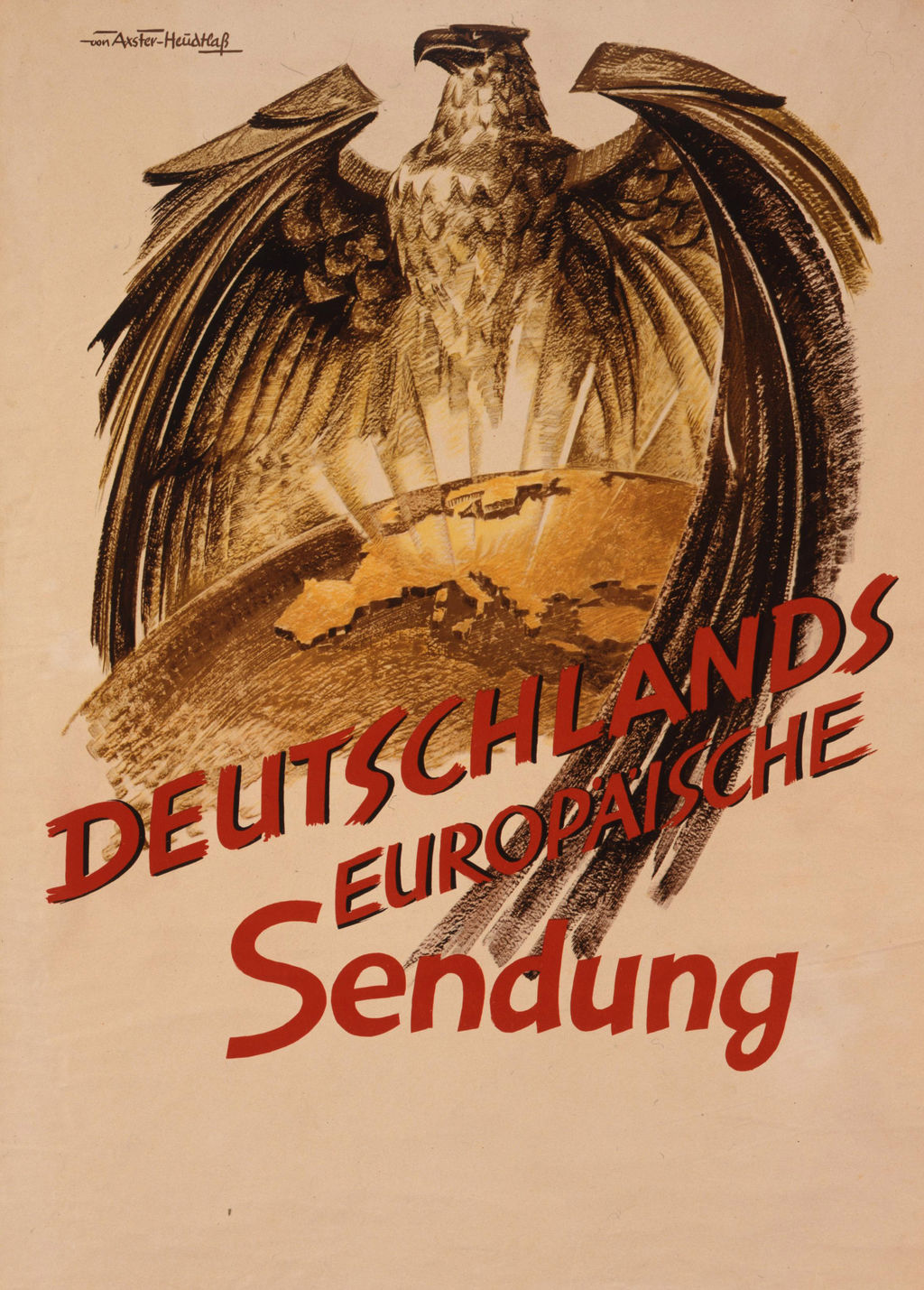IB Syllabus focus:
'The principles of fascism in Italy and Nazism in Germany.
How these ideologies influenced foreign policy and expansionist strategies.
Key leaders and their personal ideologies contributing to expansion.'
The early 20th century witnessed the rise of two dominant and aggressive ideologies in Europe: Fascism in Italy and Nazism in Germany. Delving deeper into their principles reveals how these ideologies not only shaped domestic policies but also determined the aggressive foreign policies of both nations.
Fascism in Italy
Principles
Centralised Authority: Under Fascism, the state was paramount. There was a concerted effort to centralise power, ensuring that the state's needs and decisions overrode individual rights and freedoms.
Nationalism: Italian Fascism sought to instil an intense sense of national pride and identity. This was manifested through propaganda, military parades, and youth organisations, all promoting the grandeur of Italy and its historic legacy.
Militarism: Military strength and discipline were core to Fascist ideology. The regime believed that a nation's greatness was reflected in its military prowess and ability to defend its honour and interests.
Anti-communism: Fascists viewed socialism and communism as existential threats to their nationalist and capitalist ideals. This led to widespread persecution of communists and strong opposition to Soviet Russia.
Corporatism: Mussolini's Italy embraced corporatism where sectors of the economy (like agriculture, industry) were grouped into state or para-state associations. These entities supposedly represented their members while being under state oversight, ensuring the nation's economic directions were harmonised with state objectives.
Influence on Foreign Policy and Expansion
Revision of Treaty of Versailles: Feeling short-changed after World War I, Italy sought to revise terms that, in their view, inadequately rewarded their contributions.
Mediterranean Dominance: The Mediterranean Sea had historical significance for Italy, reminiscent of the Roman Empire's might. Mussolini wanted Italy to be unchallenged in this region, envisioning a renewed "Mare Nostrum."
Colonial Ambitions: Mussolini looked towards Africa, seeking to expand Italian territories. This was driven both by the desire for resources and the wish to demonstrate Italy's position as a global power.
Key Leader: Benito Mussolini
Personal Ideology: Mussolini's views were a blend of Italian nationalism and the belief in Italy's destiny to lead. He frequently invoked the imagery of the Roman Empire and saw Italians as heirs to this legacy.
Territorial Ambitions: Mussolini was not content with Europe alone; he aspired for a vast empire extending into Africa and potentially parts of the Middle East.
Propaganda and Public Sentiment: Mussolini was adept at using propaganda to shape public sentiment. Through speeches, parades, and media, he instilled in Italians a belief in their destined greatness.
Nazism in Germany
Principles
Aryan Supremacy: Central to Nazi ideology was the belief that the Aryan race was superior. This racial hierarchy not only placed Aryans at the top but also categorised other races, especially Jews, as inferior or even sub-human.
Führerprinzip (Leader Principle): The Nazi state was structured around the absolute authority of its leader, Adolf Hitler. Every aspect of the state, military, and bureaucracy was answerable to him.

At the Nuremberg rally in 1935, Hitler reviews marching SA formations, illustrating the Führerprinzip in practice: a single leader at the apex directing the movement and the state. The mass spectacle was central to Nazi propaganda and the construction of authority. Source
Anti-communism: Nazis held a deep-rooted animosity towards communism, viewing it as antithetical to their nationalist and racial ideals. This was a significant factor in their eastern expansion aims, targeting the USSR.
Lebensraum (Living Space): Nazis believed that for the Aryan race to flourish, it required more territory, specifically in the east. This was not just for resources but also for the 'racial purification' of these areas.

This wartime poster presents Germany as Europe’s protector against the East, encapsulating the regime’s ideological pairing of anti-communism and “Lebensraum im Osten.” Such imagery legitimised conquest as a civilisational mission. Source
Anti-Semitism: The persecution of Jews under the Nazis wasn't merely opportunistic but ideologically driven. The Nazis blamed Jews for many of Germany's ills, leading to policies of exclusion, persecution, and eventually extermination.
Influence on Foreign Policy and Expansion
Undoing Versailles: The Nazis aimed to overturn the Treaty of Versailles, which they saw as a "Diktat" imposed by the victors of WWI to humiliate and weaken Germany.
Eastern Expansion: Driven by the idea of Lebensraum, Hitler sought vast territories in the east, targeting countries like Poland and the Soviet Union. This eastern drive was both for resources and a desire to impose Nazi racial ideologies on these regions.
Racial Conquest: The territories that Nazis aimed to annex were not just lands; they were spaces to be 'cleansed' and repopulated with the 'racially pure'.
Key Leader: Adolf Hitler
Personal Ideology: Hitler’s beliefs were enshrined in his book, Mein Kampf. Here, he outlined his views on Aryan supremacy, the need for Lebensraum, and his vehement anti-Semitism.
Rapid Territorial Ambitions: Hitler wasn't content with incremental gains. His ambitions were vast, aiming to reposition Germany as Europe’s foremost power within a short span.
Manipulating Public Sentiment: Like Mussolini, Hitler was a master propagandist. Using rallies, media, and public events, he kindled German nationalism, moulding public opinion in line with his aggressive ambitions.
Comparative Influence of Ideologies on Expansion
Fascism and Nazism, though distinct, had overlapping themes. Both were rooted in intense nationalism, a disdain for communism, and a belief in their nations' exceptionalism. The treaties that ended WWI were seen by both as injustices that needed rectification. While Mussolini looked to recreate the Roman Empire's past glories, Hitler's ambitions were driven by a dangerous mix of racial purity and territorial conquest. Their ideologies set Europe on a path to another devastating conflict.
FAQ
Corporatism in Fascist Italy was a system wherein sectors of the economy, like agriculture or industry, were organised into corporations or associations. These were not corporations in the modern sense but were state or para-state entities representing workers and employers alike. Mussolini believed that by managing the economy through these entities, class conflicts could be minimised, and national economic interests could be prioritised. It differed from traditional capitalism in that while private ownership was retained, the state had a considerable influence over the direction of the economy. Rather than letting market forces dictate economic directions, corporatism aimed for a collaborative approach, wherein the state, workers, and employers worked towards nationalistic economic goals.
Lebensraum, or "living space", while primarily associated with territorial expansion, also influenced other Nazi policies. Central to the Lebensraum concept was the idea of racial purity, wherein the Germanic Aryan race would dominate these new territories. This led to policies of 'racial cleansing' in annexed areas, involving the removal, persecution, and extermination of non-Aryan populations, notably Jews, Slavs, and Romani. Moreover, German families were incentivised to settle in these territories, promoting a higher birth rate to populate the expanded Reich. Economic policies were also influenced, as new territories provided resources, particularly in the east, which were deemed critical for the sustained growth and prosperity of Nazi Germany.
Both Fascism and Nazism identified communism as a significant threat to their respective ideologies and national goals. For the Fascists, communism's internationalist and class-centric ideals contrasted sharply with their focus on nationalism and the state's primacy. Similarly, Nazis viewed communism as inherently linked to Jewish conspiracies, given many prominent Bolshevik leaders were of Jewish descent. This anti-communist stance manifested in both nations' policies through purges, imprisonments, and sometimes assassinations of suspected communist sympathisers. Both regimes also directed significant propaganda efforts against communism, highlighting it as an existential threat, which further justified their authoritarian measures at home and aggressive stances abroad.
Mussolini's Fascist regime employed an array of propaganda tools to cement its ideologies within the Italian populace. The state gained control over newspapers, ensuring a steady stream of messaging promoting the regime's successes and denouncing its enemies. Radios broadcast Mussolini's speeches, emphasising Italian superiority and the destiny of a new Roman Empire. Schools were critical grounds for indoctrination, where textbooks glorified Italy's past and Fascist accomplishments. Moreover, grand parades showcasing Italy's military strength and youth organisations, like the Balilla, were instrumental in cultivating a generation fiercely loyal to the Fascist cause, all helping create a controlled environment where Fascist ideals became ingrained in daily life.
Both Fascist Italy and Nazi Germany faced internal opposition, though the scale and response varied. In Italy, Mussolini's regime faced resistance from communists, socialists, and some liberal factions. These groups were often subjected to censorship, intimidation, and imprisonment. The OVRA, Italy's secret police, played a key role in suppressing dissent. In Germany, the Nazis faced opposition from communists, social democrats, some conservative groups, and even factions within the SA, their paramilitary organisation. The Gestapo and SS were instrumental in suppressing opposition. The infamous Night of the Long Knives in 1934 saw the purging of SA leaders who posed threats to Hitler's supremacy. In both countries, dissent was ruthlessly suppressed, ensuring the continued dominance of the ruling ideology.
Practice Questions
The ideologies of Fascism in Italy and Nazism in Germany were intrinsically tied to their aggressive foreign policies between 1933 and 1940. Mussolini's Fascism, driven by dreams of a new Roman Empire and nationalistic fervour, aimed for Mediterranean dominance, influencing actions in Africa and ambitions to revise the Treaty of Versailles. Hitler's Nazi ideology, rooted in the principles of Aryan supremacy and the need for Lebensraum, directly resulted in territorial annexations and the drive eastward, targeting regions like the Sudetenland, Austria, and ultimately Poland. Both ideologies saw expansion not merely as a strategy but as an essential component to validate and reinforce their visions.
Mussolini's personal beliefs, inspired by the grandeur of the Roman Empire and the destiny of Italians to lead, significantly impacted Italy's expansionist ventures in the 1930s, including the invasion of Abyssinia and ambitions in the Mediterranean. His conviction to restore Italy's greatness led to a revisionist approach to the post-WWI treaties. Similarly, Hitler’s fervent beliefs in Aryan supremacy, detailed in Mein Kampf, coupled with his desire for Lebensraum, directly shaped Nazi Germany's aggressive policies. His rapid territorial ambitions and fixation on the east, especially the conquest of the Soviet Union, were a direct manifestation of his personal ideologies. Both leaders' visions were instrumental in setting their nations on expansionist trajectories.

